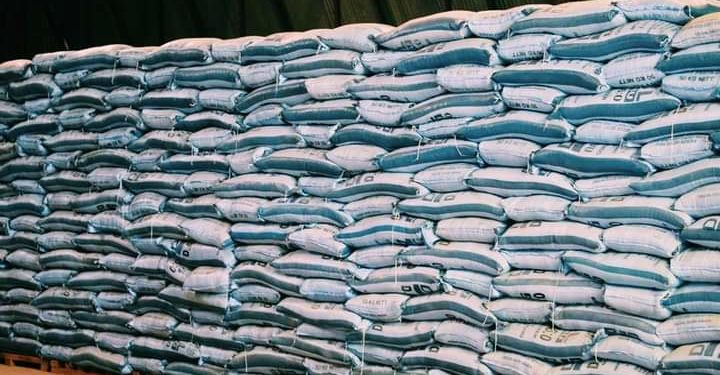Kenya’s National Cereals and Produce Board (NCPB) is under scrutiny following an auditor general’s report that revealed irregularities in the processing of a significant fertilizer donation.
The report highlights an unexplained shortfall of 564.1 metric tonnes from the original 34,400 metric tonnes donated, as well as a lack of transparency regarding associated costs.
The Auditor-General Nancy Gathungu has raised serious concerns about the handling of a substantial fertilizer donation by the National Cereals and Produce Board (NCPB). The audit, covering the financial year ended June 30, 2023, exposes a series of irregularities that call into question the board’s management practices and financial transparency.
The report states that “34,400 Metric Tons (MT) of raw materials were donated to the Country.” However, it goes on to reveal that “NCPB received 33,835.9 metric tonnes hence a short landing of 564.1 metric tonnes from the 34,400 metric tonnes of fertilizer raw materials donated from Russia.” This discrepancy, amounting to over 500 metric tonnes of valuable agricultural input, remains unexplained by the NCPB management.
Further compounding the issue, the auditor general noted that “other costs associated with the raw material of fertilizer such as shipping cost, transportation cost from the port to the granulator and handling costs were not disclosed.” This lack of financial transparency makes it impossible to determine the true cost incurred by NCPB for each 50 kg bag of fertilizer produced from the donated raw materials.
The report concludes that “the accuracy and completeness of the fertilizer granulation costs and the quantities of the various fertilizers granulated could not be confirmed.” This statement underscores the severity of the financial management issues within the NCPB.
These findings come at a critical time for Kenya’s agricultural sector, which has been grappling with rising input costs and food security concerns. The donation of fertilizer raw materials was intended to alleviate some of these pressures, making the mismanagement of this resource particularly troubling.
The NCPB’s handling of the fertilizer donation is just one of several issues highlighted in the auditor general’s report. The document also reveals a range of other financial irregularities and management concerns within the organization.
One of the most pressing issues is the NCPB’s precarious financial position. The report states that “the Board made a loss of KES 1,723,292,532 (2021/2022 loss of KES 2,227,856,959).” This continued loss-making trend raises serious questions about the long-term viability of the organization.
Moreover, the auditor general expressed concern about the NCPB’s ability to continue as a going concern, noting that “there is a threat on the entity’s going concern and the financial statements have been prepared on a going concern basis assuming continued support from the Government and other stakeholders.”
The report also highlights issues with the NCPB’s asset management. It reveals that “the Board does not have a comprehensive list of all assets it owns,” and that the existing asset register lacks crucial information such as acquisition dates, locations, and custodians of assets.
In addition to these financial and management issues, the auditor general’s report also points out several instances of non-compliance with various laws and regulations. These include unauthorized use of leased-out property, irregular payments of acting allowances, and non-compliance with employment laws regarding deductions from employees’ wages.
The NCPB’s board of directors also came under criticism for its composition and operations. The report notes that some board committees had more members than allowed, and that the gender balance of the board does not meet the required standards.

















